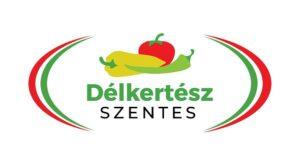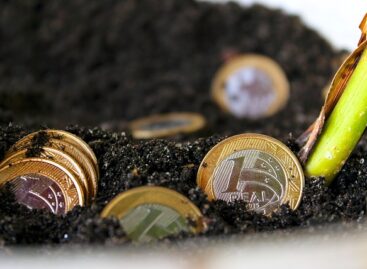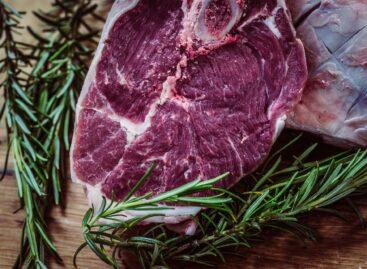DélKerTÉSZ in Szentes achieved record traffic
DélKerTÉSZ in Szentes achieved a record turnover last year, its net sales from the sale of vegetables and fruits approached HUF 18 billion, which is a 37 percent increase on an annual basis – the cooperative informed MTI.

According to the announcement, the members of DélKerTÉSZ, who mainly grow tomatoes and peppers, sold 53,300 tons of vegetables last year, which is more than 1,500 tons, almost 3 percent more than the amount in 2021. Sales of the so-called fresh market products – peppers and tomatoes – fell by 1,100 tons to less than 26,000 tons, because several of the producers planted cherry tomatoes, the yield of which is lower than that of the traditional varieties. Last year, 54 percent of the fresh market products sold were peppers, 44 percent were tomatoes, and the rest were mainly cucumbers or cabbages.
President Sándor Nagypéter explained that the cooperative was able to pay the producers HUF 4.4 billion more last year than in 2021
On an annual level, producer prices for fresh market products increased by 42 percent for peppers, almost 40 percent for tomatoes, and 12-28 percent for specialty peppers. DélKerTÉSZ sold HUF 10 billion worth of vegetables to five store chains with a nationwide network, which is an increase of more than HUF 2 billion. Foreign sales increased by 34 percent to HUF 3.1 billion, the largest foreign customers were the Czech, Slovak, German, Romanian, and Bulgarian partners. According to Sándor Nagypéter, there are further opportunities in exports to neighboring countries, mainly due to the short transport routes.
The markets have been significantly reorganized due to the drift in energy prices and the prices of input materials, as well as climate change
There are places where the planting was postponed, in several countries, for example in Spain, the producers suffered from a serious lack of water, but the extreme weather also set back the harvest in cold North Africa. In the Netherlands, energy prices had a negative impact on the production of vegetables that require additional lighting, the president added. He believed that the significant structural changes expected due to economic and natural reasons could be a turning point for Hungarian producers and Hungarian vegetables. According to the president, Hungarian producers can be one step ahead in the regional markets due to transportation distances and the use of geothermal energy and thermal water, but this requires continuous improvements.
Cultivation of cultivated vegetables is an innovative sector of agriculture that is gaining ground on an international level and has serious potential for development.
Production in a regulated environment is becoming more and more important not only because of the weather becoming more extreme due to climate change, but it also plays a significant role in ensuring that the appropriate quantity and quality of domestic vegetables and fruits are available to consumers. However, production in a closed space requires significant resources. In order for producers to be able to develop continuously, a central bank or state program with preferential interest rates, specifically for agricultural enterprises, is needed. The Gábor Baross Újrairosíszácii Hitelprogram can provide assistance for investments, while the Új Magyarország TÉSZ Revolving Asset Loan Program of the Magyar Development Bank provides working capital loans with discounted interest rates to fruit and vegetable producer organizations.
The Délalföldi Gardeners’ Cooperative was founded in 2002 and brings together the activities of its almost five hundred members – producers from Szentes and the surrounding area, family farms, and co-entrepreneurs. DélKerTÉSZ is the largest producer and sales cooperative in Hungary. The majority of the range is made up of peppers – edible white pepper, capia pepper, sharp hot pepper – but they also grow tomatoes, snake cucumbers, cabbage and Chinese lettuce. In 2021, the paprika from Szentes – this includes the white stuffing (TV), the pointed strong, the kápia and the tomato-shaped paprika – was included in the list of Hungarians.
MTI
Related news
István Nagy: You can join the agricultural crisis insurance system soon
🎧 Hallgasd a cikket: Lejátszás Szünet Folytatás Leállítás Nyelv: Auto…
Read more >The Earth is warming faster than models can track – air pollution has so far masked the true severity of the situation
🎧 Hallgasd a cikket: Lejátszás Szünet Folytatás Leállítás Nyelv: Auto…
Read more >Related news
Festival buzz at the 60th anniversary EuroShop trade fair
🎧 Hallgasd a cikket: Lejátszás Szünet Folytatás Leállítás Nyelv: Auto…
Read more >No matter how much you save, food and gadgets always take the money
🎧 Hallgasd a cikket: Lejátszás Szünet Folytatás Leállítás Nyelv: Auto…
Read more >Historic price reduction at ALDI
🎧 Hallgasd a cikket: Lejátszás Szünet Folytatás Leállítás Nyelv: Auto…
Read more >








